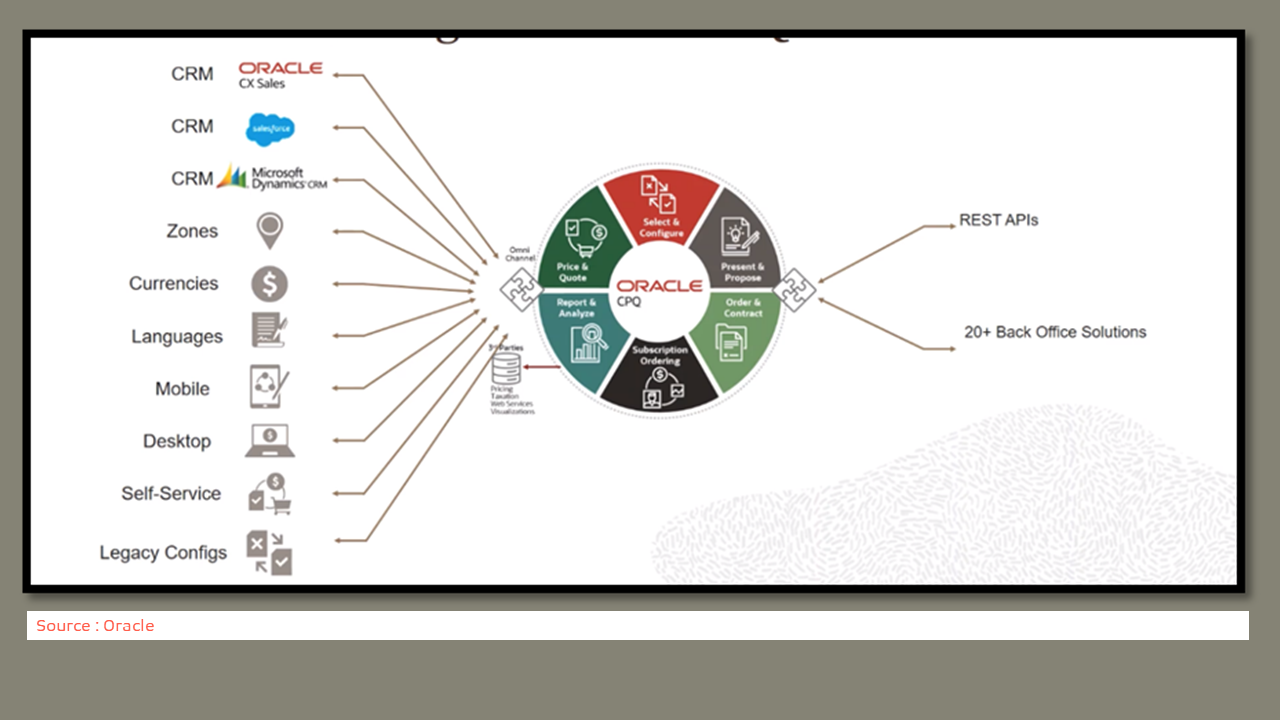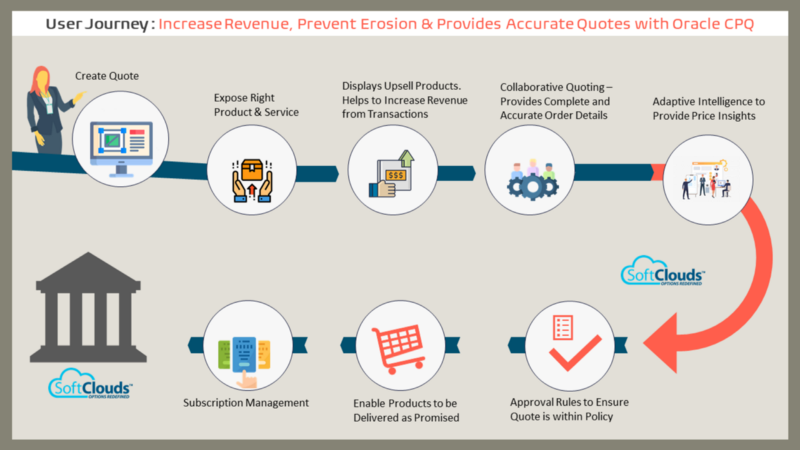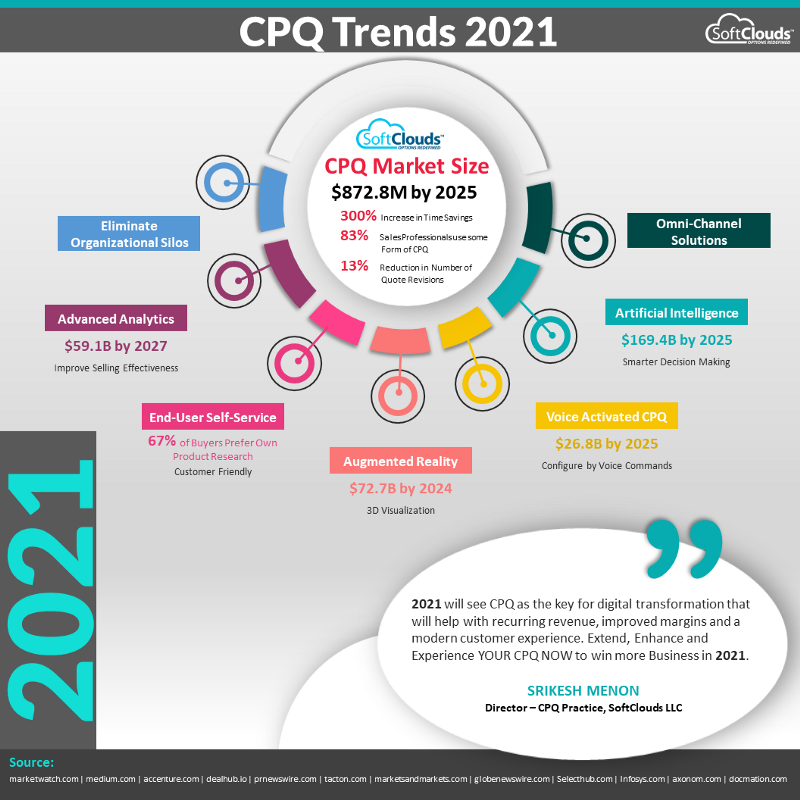Increasing sales and revenues are not always a sign of rising profits. If high discounts are applied during the sales process to close a deal, the gross profits will be reduced over time. In the subscription economy, giving high discounts or selling outdated products/services will not only have a long-term impact on the potential revenue earned, but also have a negative impact on the operating costs. Missing an upsell/renewal opportunity is another driving factor for eroding revenues and profit margins.
What is Erosion in Business?
Erosion is best described as any negative effect that is aimed at the revenue, income, or properties of an organization. It is a risk factor that must be considered, especially when considering the lifecycle of the business or the duration of the economic market. There are different types of erosion like revenue, profit, and asset. Know more about them.
Top Reasons for Revenue and Margin Erosion
Revenue and Margin erosion can happen due to various reasons in a sales process and here are some of my top reasons:
- Human Errors and Lack of Product Knowledge - Customers always want to speak to someone with a certain degree of experience, employees who advice these customers produce 69% more profits.
- Lack of Well-Defined Sales Process - Even the most promising deals can slip away due to disorganization - unclear steps and milestones directing sellers from prospecting to presenting to offering the sale.
- Heavy Discounting by Sales Team to Close Deals - There are number of instances when sales lacks product confidence and ends up offering heavy discounts to make sure that the product is sold.
- Lack of Collaboration between Teams involved in Quoting - Bad teamwork, cohesiveness and collaboration decreases efficiency, productivity, and profits.
- Outdated Proposal Selling Outdated Products - In many instances, outdated proposals or expired products are sold just to get the deal going, this in turn tarnishes the brand image and affects revenues.
- Proposals for Configuration & Cost Estimation Taking Time - As part of the sales prediction, calculating and tracking the time from a lead to closure is important. But higher sales periods also mean higher cost-of-sale, filling another bucket of missed margins.
- High Number of Proposal Corrections - A lack of consistency in the customer requirement analysis may indicate multiple versions or corrections of proposals.
CPQ - an Intro
Configure Price Quote is a middle office software integrated with CRM in the front end and ERP in the backend. This makes the sales process streamlined, faster, and organized. Know more about Why CPQ is right for your company.
The CPQ Market will reach $872.8 Million by 2025 with a compound annual growth rate of $19.23%. The growing adoption of smartphones, the rising popularity of mobile apps, and the growing need for high productivity are some of the major factors driving market growth.
How CPQ Prevents Margin Erosion?
Advanced CPQ software lets you customize individual customers’ contracts and sales quotes, introduce discounts, promotional deals, or other adjustments to the regular price. In addition, CPQ reduces the possibility of user error by drawing from reliable data sources to auto-populate fields. Why CPQ matters and how it can affect your growing business?
The following points show how CPQ can prevent margin erosion in your business:
- Human Errors, Lack of Product Knowledge, and Configuration Errors: Tribal knowledge is converted into configuration rules and CPQ helps sales personnel throughout the selling process providing guidance, opportunities, and indicators to upsell. CPQ ensures no opportunity is lost and increases the deal size. It would expose the right products/services and guide the salesperson to upsell or cross sell products that earn more revenue from the transaction.
- Lack of Well-Defined Sales Process: CPQ can be used to systematically define the sales process, how the transaction would be routed through various teams, and also ensure that the transaction is not lost in any stage, notifications are triggered if the quote is stuck in any stage. Depending on the business unit, multiple sales processes can be defined and managed in CPQ.
- Inconsistency in the Sales Channel: Multi-channel experience is the new norm, CPQ can be used to provide a uniform sales process across various channels. You can define rules based on the channel if different products or pricing need to be displayed. Rules can be used to expose different flavors across various channels or user groups.
- Pricing and Approvals: CPQ helps to define pricing rules that in turn gets rid of inaccurate pricing. Deal guidance and discounting rules ensure that the discounting process is controlled and within the guardrails defined by the company. The systematic approval process ensures that high discounts are caught and sent for approval, followed by system sending notifications to the approver.
- Outdated Proposal: Rules can be defined in CPQ to validate the configuration and products before it is presented to the customer. The customer would always be presented with an accurate quote and that avoids loss of customer trust and revenue.
- Renewals: CPQ can be linked easily to the subscription management system to manage subscriptions and trigger auto renewals. Rules can be written to be triggered during renewals to look for upselling and increase revenue during renewals. In addition, auto renewals can be setup and ensure no business is lost during renewals.
Oracle CPQ - an Intro
Oracle CPQ provides a distinct advantage over many of the other CPQ products in the market. For now, it is the only CPQ product that can integrate CPQ with multiple frontends and back-end applications to create a complete end-to-end solution for a sales process.

Oracle CPQ can integrate with over 20+ Backoffice solutions like E-Business suite from Oracle, NetSuite, SAP etc., and CRMs like, Oracle CX Sales, Salesforce, and Microsoft Dynamics 365.
Oracle CPQ has a powerful rules engine to handle complex product configuration rules. It supports the direct sales, reseller, and self-service channels. It has robust support for subscription orders, including renewals, amendments, suspensions, terminations, order stacking and subscription billing via an integration with Oracle Subscription Management Cloud. Why Oracle CPQ is right for your company?
The below image shows the User Journey & how Oracle CPQ helps to increase revenue, prevent erosion and provide an accurate quote

Oracle CPQ Competitor Analysis
Some of the key differentiators of Oracle CPQ over the competitors are:
- Oracle CPQ is independent of the CRM or ERP solution of the organization. Oracle CPQ can be integrated with any front office or back-office systems. Oracle CPQ has packages for integrating with CRM systems like Oracle CX Sales, Salesforce, MS Dynamics.
- Oracle CPQ has a pricing engine that can handle complex pricing algorithms and can be completely configured to handle complex pricing logic.
- Oracle CPQ supports multiple channels like Direct Sales, Reseller and Self Service.
- Oracle CPQ has robust support for subscription orders, including renewals, amendments, suspensions, terminations, order stacking and subscription billing via an integration with Oracle Subscription Management Cloud.
- Oracle CPQ allows develop a customized, modern and clean user interface with JET UI and is device independent.
- Deal management to provide mathematical analysis to predict how customers will respond to different prices for products/services in order to optimize net revenue or margin.
- Deal negotiation to guide sales representatives to achieve optimal prices and discounts for their customers using analytics, and a graphical dashboard.
Oracle CPQ is proven to work at enterprise scale with more than 8 implementations of 10,000 users or more. Oracle is a Leader in Gartner Magic Quadrant, due to its market presence, comprehensive CPQ functionality and the scope of its quote-to-cash offerings.
Future of Oracle CPQ Cloud
There has been a quantum leap across the industries in digital transformation. A McKinsey Survey found that the pandemic has significantly accelerated the pace of adoption of digital transformation technologies, as well as speeding up other business changes.

CPQ will be in the center of these digital transformation initiatives and helps organizations define and market strategic visions for their product. CPQ will play a key role in the digital transformation journey helping to transform three key areas of the enterprise: customer experience, operational process, and business model.
The asset-based ordering feature of Oracle CPQ is used to sell tangible assets or subscriptions for services delivered over a period (e.g. cell phone service, cable service, office Wi-Fi, etc.). It can store the assets or can be integrated with a 3rd party asset management system.
My Concluding Thoughts
CPQ would play a key role in helping organizations succeed in the digital economy. It would help Sales representatives build and get the quote without an error to the customer, also simplify the quoting process for partners and self-service portals, ensuring an accurate quote. CPQ can speed up the sales cycle and help the sales rep confidently deliver a quote that is priced for winning the deal. Upsell and cross-sell will help to transform an average deal into a highly profitable deal.
In years to come, we will see more organizations implementing Oracle CPQ to transform their business process, move into the digital economy, and support the subscription economy. More organizations would move from legacy systems to cloud-based systems and oracle CPQ would help in this journey helping in removing functional silos, more collaboration in the selling process and also help organizations to extend the business model and sell across multiple channels. All along the process, CPQ will help to plug in all the erosion in revenue.
